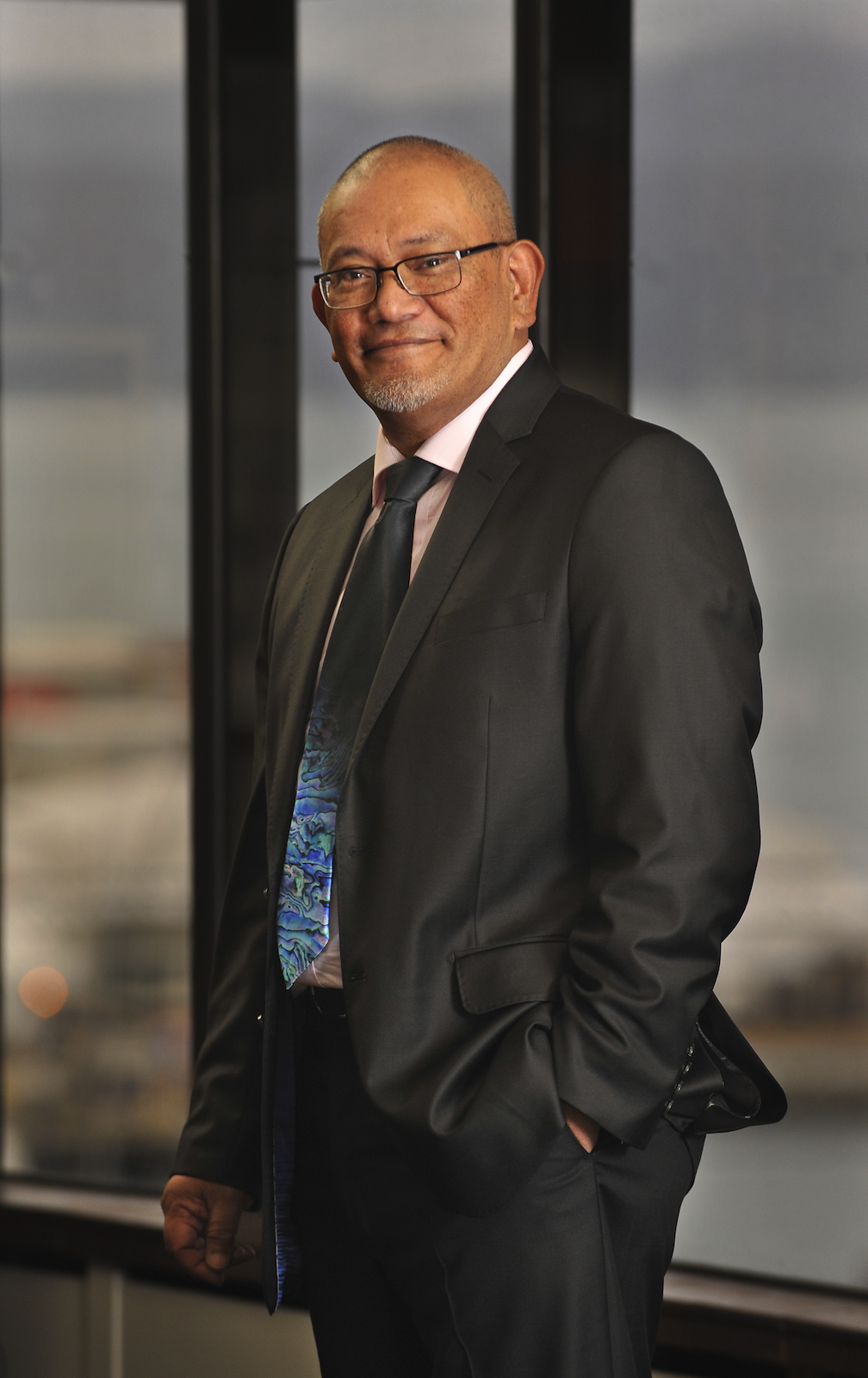Ngahiwi Apanui is not one to rest on his laurels. The Chief Executive of Te Taura Whiri i te Reo Māori acknowledges however, that it would be easy to do so given the success of this year’s Te Wiki o te Reo Māori.
Published: Monday, 19 September 2016 | Rāhina, 19 Mahuru, 2016

Ngahiwi Apanui is not one to rest on his laurels. The Chief Executive of Te Taura Whiri i te Reo Māori acknowledges however, that it would be easy to do so given the success of this year’s Te Wiki o te Reo Māori.
Part of the success can be attributed to commentary and support from places and people not normally regarded as archetypical leading lights of language revitalisation.
From Andrew Mehrtens lamenting the loss of his reo (who knew he even spoke it?), leading media figures Pete Williams calling for the English version of the national anthem to be dumped and Heather du Plessis-Allan advocating one week to celebrate Māori Language is plain tokenism to the New Zealand Herald publicly apologising for initially refusing to print a memorial notice completely in te reo Māori – the transformative role of te reo Māori and its ability to bring people together, are the strategic underpinnings that drove this year’s celebrations.
They also form the basis of Te Taura Whiri’s promotional role going forward.
“We’ve tried a variety of approaches in the past, I felt like we were in the main, preaching to the converted with our campaigns. So when I came in to the role, nearly a year ago now, I knew I wanted to take an outward approach and get out and engage the community.”

Ngahiwi Apanui, Te Taura Whiri i te Reo Māori Chief Executive Officer.
If the week was a success in terms of the media coverage secured for te reo Māori and the diverse stories featured about te reo Māori, then the launching pad for this was the opening event for Māori Language Week – a parade in Wellington which started at Parliament and ended at Te Papa and involved over 5,000 people.
“I’ll be the first to admit that having a parade in the middle of winter was a risk. For a month leading up to the parade I was continuously checking the long range weather forecasts!. We were lucky that Tāwhirimātea turned it on for us. But if we continue with this, we might need to look at moving it to the warmer months.”
In line with his thinking on community ownership of the language, Ngahiwi believes regional parades that are nationally coordinated and streamed live online would be the ultimate way to open the week in the future.
“We are serious and open about promoting te reo Māori to non-Māori and out in the regions. I’m keen to re-frame our interactions and develop a more inclusive approach to language promotion and revitalisation.”
Understanding the nation’s appetite for the language and pitching promotions accordingly are not the only forces driving Ngahiwi’s thinking. The recent passing of Te Ture mō te Reo Māori 2016 and with it the establishment of new entity Te Mātāwai heralds change for Te Taura Whiri.
While the new arrangements see Te Taura Whiri retain its roles around issuing certificates of competency and promotion of the language – it loses its community funding and part of its research funding, with Mā te Reo, CBLI (Community Based Language Initiatives) and He Kāinga Kōrerorero all being transferred to Te Mātāwai.
It makes for uncertain times for the long-standing language watch-dog whose genesis is seeded in the Māori language protest movements of the seventies, subsequent claims like WAI 11 and whose management and governance over the years reads like a who’s who of Māori leadership – people like Tā Kingi Ihaka, Amiria Simpson, Timoti Karetu and Erima Henare. So huge is the legacy of these leaders that they cast a long shadow over the organisation and the sector, something that Ngahiwi is acutely aware of.
“I didn’t apply for the job lightly, I feel very fortunate to be here and to be at the helm at this time of change and ambiguity. I embrace the opportunity to reset the agency and align it to its new role. We look forward to working in partnership with Te Mātāwai to develop an effective Māori language sector that fosters mutually beneficial relationships with government departments and businesses and improved coordination of revitalisation initiatives.”
Ngahiwi dismisses talk of competition or even duplication of role between the two agencies, favouring a pragmatic approach that is focussed on creating enduring outcomes for the language.
“The only way we are going to effect wider uptake of language revitalisation is by working through and with others. Saving our language is not going to be achieved through the efforts of one or a handful of agencies in Wellington. We can however influence, advise and support others into the enterprise of language revitalisation, and that’s where I see the focus for Te Taura Whiri going forward.”
“We want to have a role that’s valued by the sector. We want to have integrity in the way we go about our business and set a quality benchmark and develop a culture of continual improvement in everything we do. So all of us in the Māori language sector need to work and partner together. Because there’s too much at stake. The research tells us that between 18 percent – 21 percent of Māori are speakers of te reo Māori and only 3 percent of the total population speak te reo. If that doesn’t frighten you into working with your partners, nothing will!”
Definitely not resting on his laurels.